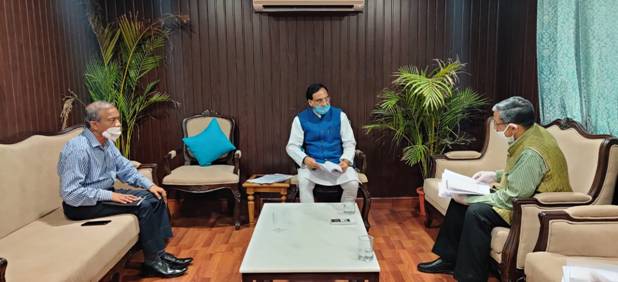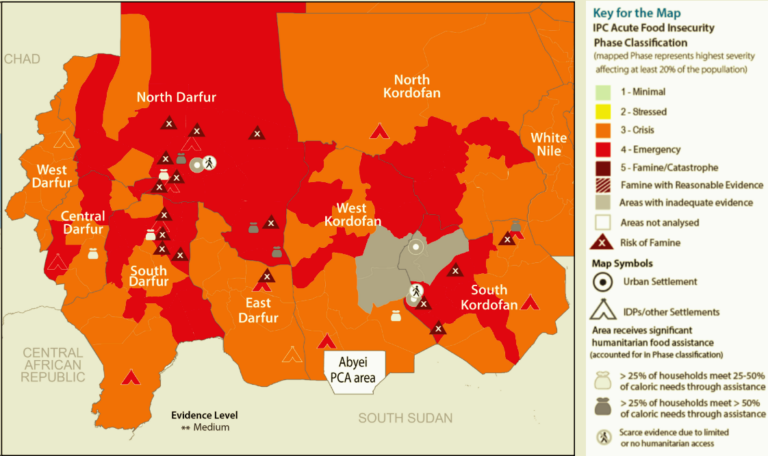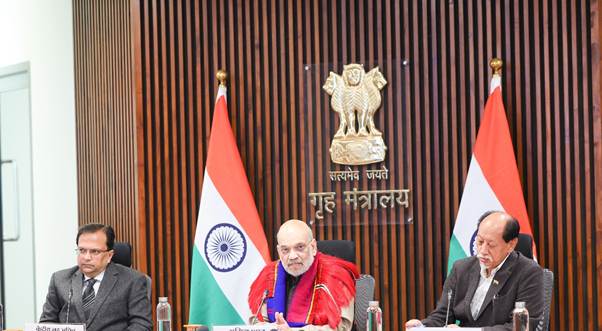
The UGC guidelines on Examinations and Academic Calendar for the Universities in View of COVID-19 Pandemic and Subsequent Lockdown were issued in presence of Union HRD Minister Ramesh Pokhriyal 'Nishank' in New Delhi on Wednesday. Secretary, Higher Education, MHRD Shri Amit Khare and senior officials of the Ministry and UGC were present on the occasion.
-globalbihari bureau
New Delhi: In view of Covid-19 pandemic and subsequent lockdown, the University Grants Commission on Wednesday issued guidelines to all universities based on the recommendations of an Expert Committee headed by Prof. R. C. Kuhad, Former Member, UGC and Vice Chancellor, Central University of Haryana, on the issues related to the Examinations and the Academic Calendar to avoid academic loss and take appropriate measures for the future of students.
The following are the main recommendations in the guidelines issued by UGC on Wednesday
1. Intermediate Semester Students: Will be graded based on internal assessment of the present and previous semester. In states where the COVID-19 situation has normalized, there will be exams in the month of July.
2. Terminal Semester Students: exams will be held in the month of July.
3. A COVID-19 cell will be constituted in every university which will be empowered to solve the issues of students related to academic calendar and examinations.
4. A COVID-19 cell in the UGC to be created for faster decision making.
The highlights of the Guidelines are as under:
Guidelines are advisory in nature.
University may chart out its own plan of action taking into consideration the issues pertaining to COVID – 19 Pandemic
Ensure Social Distancing.
EXAMINATIONS
- Universities may adopt alternative and simplified modes and methods of examinations to complete the process in shorter period of time .
- Universities may adopt efficient and innovative modes of examinations by reducing the time from 3 hours to 2 hours.
- Universities may conduct Terminal / Intermediate Semester / Year examinations in offline / online mode, as per their Ordinances/Rules and Regulations, Scheme of Examinations, observing the guidelines of “social distancing” and keeping in view the support system available with them and ensuring fair opportunity to all students.
- Terminal semester/ year examinations for PG/ UG courses/ programmes may be conducted by universities as suggested in the academic calendar. The timing of the examination may be considered appropriately by the universities, and examination may be conducted keeping in mind the guidelines of “social distancing”.
- For intermediate semester/year students, the universities may conduct examinations,after making a comprehensive assessment of their level of preparedness, residential status of the students, status of COVID-19 pandemic spread in different regions / state and other factors.
- In case the situation does not appear to be normal in view of COVID-19, in order to maintain “social distancing”, safety and health of the students, grading of the students could be composite of 50% marks on the basis of the pattern of internal evaluation adopted by the universities and the remaining 50% marks can be awarded on the basis of performance in previous semester only (if available). The internal evaluation can be continuous evaluation, prelims, mid-semester, internal evaluation or whatever name is given for student progression.
- In the situations where previous semester or previous year marks are not available, particularly in the first year of annual pattern of examinations, 100% evaluation may be done on the basis of internal assessments.
- If the student wishes to improve the grades, he/she may appear in special exams for such subjects during next semester.
- This provision for intermediate semester examinations is only for the current academic session (2019-20) in view of COVID-19 pandemic, while maintaining safety and health of all the stakeholders and sanctity and quality of examinations.
- Period of lockdown may be treated as ‘deemed to be attended’ by all the students/ research scholars.
- Adopt appropriate strategies to facilitate the UG/ PG students pursuing Projects/ Dissertations. Universities may consider to assign review-based/ secondary data-based projects or software-driven projects, instead of laboratory-based experiments or field/ survey-based assignments to these students.
- The universities may conduct the practical examinations and Viva-Voce Examinations through Skype or other meeting apps, and in case of intermediate semesters, the practical examinations may be conducted during the ensuing semesters.
- The universities may conduct the Ph.D. and M. Phil. Viva -Voce Examinations through Video Conferencing using Google, Skype, Microsoft Technologies or any other reliable and mutually convenient technology.
- Extension of six months period to the M.Phil.or Ph.D. students.
- Every University shall establish a cell for handling student grievances related to examinations and academic activities during COVID-19 pandemic and notify effectively to the students.
- The UGC will establish a Help Line for monitoring student grievances related to examinations and academic activities during COVID-19 pandemic.
ACADEMIC CALENDAR
The following calendar is suggested for the academic session 2019-2020:
The Academic Calendar is suggestive in nature. The universities may adopt / adapt it after making a comprehensive assessment of their level of preparedness, residential status of the students, status of COVID-19 pandemic spread in their city / region / state and other factors.
| Start of Even Semester | 01.01.2020 |
| Suspension of Classes | 16.03.2020 |
| Continuation of Teaching-Learning through various modes such as Online Learning / Distance Learning / Social Media (WhatsApp / YouTube) / E-mails / Video Conferencing / Mobile Apps / SWAYAMPRABHA Channels on DTH etc. | 16.03.2020 to 31.05.2020
|
| Finalisation of Dissertation/ Project Work/ Internship Reports/ E-labs/ Completion of Syllabus/ Internal Assessment/ Assignment/ Students Placement Drive etc.
|
01.06.2020 to 15.06.2020 |
| Summer Vacations# | 16.06.2020 to 30.06.2020 |
| Conduct of Examinations:
Terminal Semester/ Year Intermediate Semester/Year |
01.07.2020 to 15.07.2020 16.07.2020 to 31.07.2020 |
| Evaluation and Declaration of Result:
Terminal Semester/ Year Intermediate Semester/ Year |
31.07.2020 14.08.2020 |
#– If situation so demands, the universities can have Summer Vacations for 30 days from 01-06-2020 to 30-06-2020. In that case the teaching-learning through various modes can be held up to 15-05-2020 and subsequently Finalization of Dissertation etc. may be completed from 16-05-2020 to 31-05-2020.
2. The Academic Session 2020-21 may commence from 01.8.2020 for old students and from 01.09.2020 for fresh students.
The following calendar is suggested for the academic session 2020-2021:
| Admission Process | 01.08.2020 to 31.08.2020 |
| Commencement of Classes
Students of 2nd/ 3rdyear Fresh batch (First Semester/Year) |
01.08.2020 01.09.2020 |
| Conduct of Examinations | 01.01.2021 to 25.01.2021 |
| Commencement of Classes for Even Semester | 27.01.2021 |
| Dispersal of Classes | 25.05.2021 |
| Conduct of Examinations | 26.05.2021 to 25.06.2021 |
| Summer Vacations | 01.07.2021 to 30.07.2021 |
| Commencement of Next Academic Session | 02.08.2021 |
Some General Guidelines
1. Universities may follow a 6-day week pattern.
2. Students be given exposure to laboratory assignments/ practical experiments through virtual laboratories, sharing of the recorded visuals of laboratory work and digital resources available for the purpose.
3. Link provided by MHRD for virtual laboratories to facilitate the students of science/ engineering/ technology streams may also be suitable for such purposes.
4. Develop virtual classroom and video conferencing facility and all teaching staff should be trained with the use of the technology.
5. Universities should prepare e-content/e-lab experiments and upload on their websites.
6. Strengthen the mechanism of mentor-mentee counselling.
7. Universities may devise a proforma to record the Travel/ Stay history of the staff and students for the period when they were away from the university due to lockdown.
8. Faculty should be adequately trained for the use of ICT and online teaching tools, so that they complete about 25% of the syllabus through online teaching and 75% syllabus through face to face teaching.
Note
In view of present scenario and future uncertainties
Universities may adopt/ adapt and implement these Guidelines in a transparent manner by making alterations/ additions/ modifications/ amendments to deal with particular situation(s) in the best interest of students, educational institution and the entire education system,
University may adopt alternative modes of admission process, if otherwise legally tenable.
Educational institutions located at places where the Government (Centre/ State) have imposed restrictions on gathering of public, the institutions may plan accordingly.
In any case, the recommendations shall not cause any restrictions on the guidelines/directions issued by the appropriate Government/competent authority.





